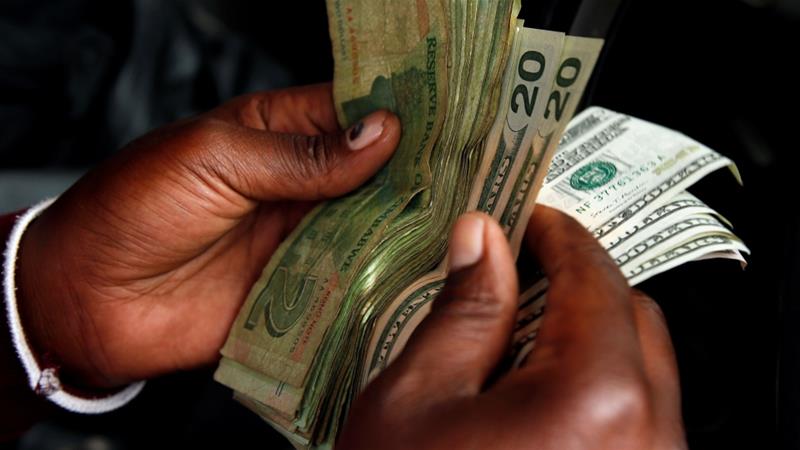Zimbabweans prepare for the second foreign currency auction of the year 2020 today but there are some important things to note. There is much confusion of what the weighted average rate means for the country, for those who acquired foreign currency from the auction and for those who did not. There has been a lot of action in the background against mobile money and the Zimbabwe Stock Exchange in an attempt to make the auction-rate the only rate in the nation. The new rate, however, has the same cardinal flaw as the interbank rate, it is not an effective rate.
Auction system
Just a quick reminder on how the auction system works. Bidders submit their bids a day before. Not all the information on the auction has been made available but it’s safe to assume bidders are not aware how much is available. Those bids that are accepted are then matched to the available foreign currency. The weighted average of all bids is then used as the official exchange rate. Let’s use two examples to show the problem with this auction.
Auction 1
Tapiwa bids for US$5 at a rate of 100
Sandra bids for US$10 at a rate of 70
Garikai bids for US$12 at a rate of 30
Tatenda bids for US$3 at a rate of 25
The weighted average rate, in this case, is calculated by dividing the total number of Zimbabwean dollars that were put into the auction by the total number of US dollars that were sold in the auction;
Weighted average rate = (5*100+10*70+12*30+3*25)/(5+10+12+3)
= (500+700+360+75)/(30)
=1635/30
Weighted average rate =54.5
Auction 2
Matthew bids for US$20 at a rate of 50
Farisai bids for US$15 at a rate of 80
Tanya bids for US$10 at a rate of 90
Nyasha bids for US$5 at a rate of 30
Using the same method as before, the weighted average rate is ;
Weighted average rate = (20*50+15*80+10*90+*30)/(20+15+10+5)
=(3250)/50
Weighted average rate = 65
One thing becomes clear very quickly, while the auction one weighted average rate is 54.5 and the auction two weighted average rate is 65, nobody in those auctions paid that amount for foreign currency. Asking Tapiwa to price at 54.5 or Tanya to price at 65 is unfair. In the same breath using 54.5 for Tatenda and 65 for Nyasha to price their goods would be very profitable. In both auctions, nobody bought the foreign currency at the weighted average rate.
This is what the words “the rate is not effective” mean. It is not the real rate that anyone accessed money at. Some may have accessed at the exact weighted average rate but I can assure you that is a coincidence and not by design. The rate is, therefore, a yolk that hangs heavy on the necks of those who accessed money at a higher rate and a rent-seeking opportunity for those who accessed foreign currency at a lower rate. In reality, if you’re in a rent-seeking mindset you would rather rent seek to the rate of 100 than 57 even if you bought your foreign currency at 25.5.
A weighted average is mathematically the right way to go about measuring the rate used in the market. That is not a problem. When a commodity is scarce the spreads are quite high with differing degrees of desperation for the scarce resource. We can safely infer that the chaps that bid 100 in the first auction had slightly more pressing motivations than the chaps who bid 25.5 who likely went unmatched because of short supply.
Taking out the competition
The Friday move by the Ministry of Information and Publicity to suspend mobile money and share trading had an element of rate protection in them. When Finance Minister Mthuli Ncube announced the pending introduction of a Reuters based electronic real-time foreign currency trading system we surmised that they would go after rate publishers and the black market to solidify the position of their rate as the only reliable game in town. Both moves eventually came so none of this should surprise. The real question should be how long are they willing to play this game?
Today’s auction will not have a black market rate to compete with in public spaces. There will be no Old Mutual Implied Rate with the stock market closed. We are likely to see a narrower spread in the bid rates. Seeing that those who bid 100 could’ve gotten foreign currency at a lower rate other bidders will likely offer lower. Conversely seeing that those who bid 25.5 likely left unsatisfied others would be tempted to bid a bit higher than that. Of course, all this assumes the availability of foreign currency. If it becomes even more scarce bidders will become more desperate. Results will tell.









Great analysis!
Thank you Charles.